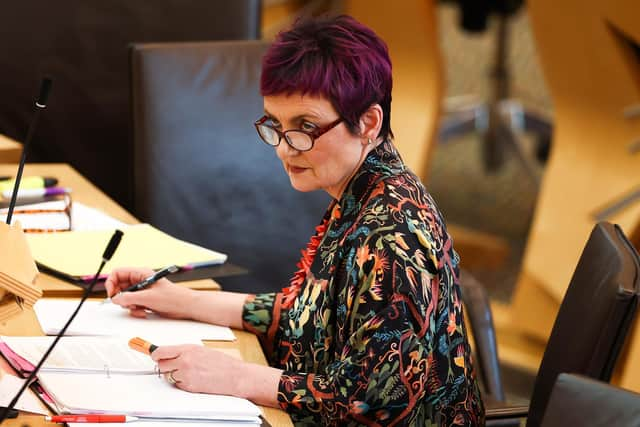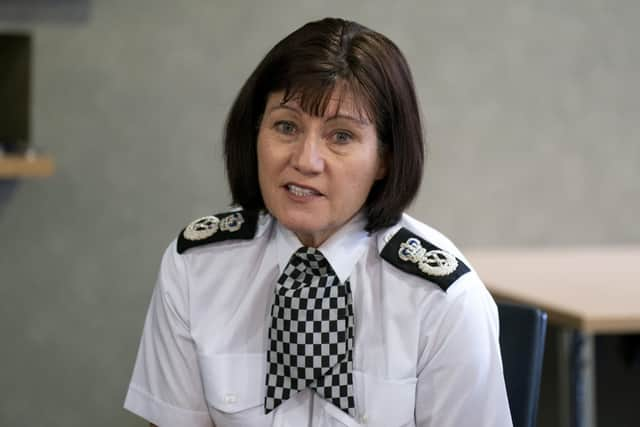Hate crime Scotland: Angela Constance to raise non-crime hate incident concerns with police constable
Justice secretary Angela Constance has raised concerns over Police Scotland’s controversial policy on recording non-crime hate incidents with policing chiefs and has insisted the force is treating a review of the procedure “a priority”.
Ms Constance told MSPs she would raise the issue with Police Scotland chief constable Jo Farrell when they next meet, but has already raised the concerns with the Scottish Police Authority (SPA).
Advertisement
Hide AdAdvertisement
Hide AdThe issue was first raised by Conservative MSP Murdo Fraser after he discovered he had a non-crime hate incident logged against him for a tweet mocking Scottish Government transgender policy, despite no crime being committed. More confusion emerged later after Police Scotland, who stated every report would be logged as a non-crime incident, confirmed complaints against Humza Yousaf and JK Rowling were not recorded as such.


The recording of non-crime hate incidents is a long-standing policy, but has had light shed on it with the rollout of enforcement of the Scottish Government’s Hate Crime Act this month.
Mr Fraser has threatened Police Scotland with legal action over the policy, claiming it breaches human rights laws.
Speaking in Holyrood, the Tory MSP asked the SNP justice secretary whether the “policy is being applied on an even-handed basis”, warning “evidence would suggest that that is no longer the case”.
But Ms Constance said she had “faith in Police Scotland as an organisation that has human rights at its core and that they will apply the law, but also their procedures fairly and without fear or favour to any party”.


Pressed by SNP MSP Michelle Thomson over non-crime hate incidents, Ms Constance confirmed she had raised the issue with police chiefs.
She said: “The College of Policing recently published updated guidance on this matter for England and Wales and whilst not directly applicable to Police Scotland, they are currently reviewing it. If there are proposed changes, this will be subject to consultation.
“How hate crime is investigated and recorded is an operational matter for Police Scotland. However, I have discussed the issue with the chair of the Scottish Police Authority and will do so again and will be raising this with the chief constable when we next meet.”
Advertisement
Hide AdAdvertisement
Hide AdMs Thomson stressed that her “concern is regarding Police Scotland” and “the fact at the moment we appear to have an unclear process, at least in the eyes of the public, as to what is exactly termed a non-crime hate incident”.


She added: “My concern is a number of people may have sought a subject access request notice and find themselves egregiously that their name has been recorded. I wonder if the Cabinet secretary has explored that possibility with Police Scotland.”
In response, Ms Constance said: “My conversations, I would hope, with the SPA and indeed Police Scotland, will cover a range of matters – many of which have been raised with me directly in the chamber. I very much agree that clarity on these matters is important.
“My understanding is that this work to review the guidance and code published by the College of Policing, Police Scotland do consider this to be a priority and are progressing with matters. Thereafter, they will consult, if there are any changes, particularly with their officers, stakeholders and staff associations.”